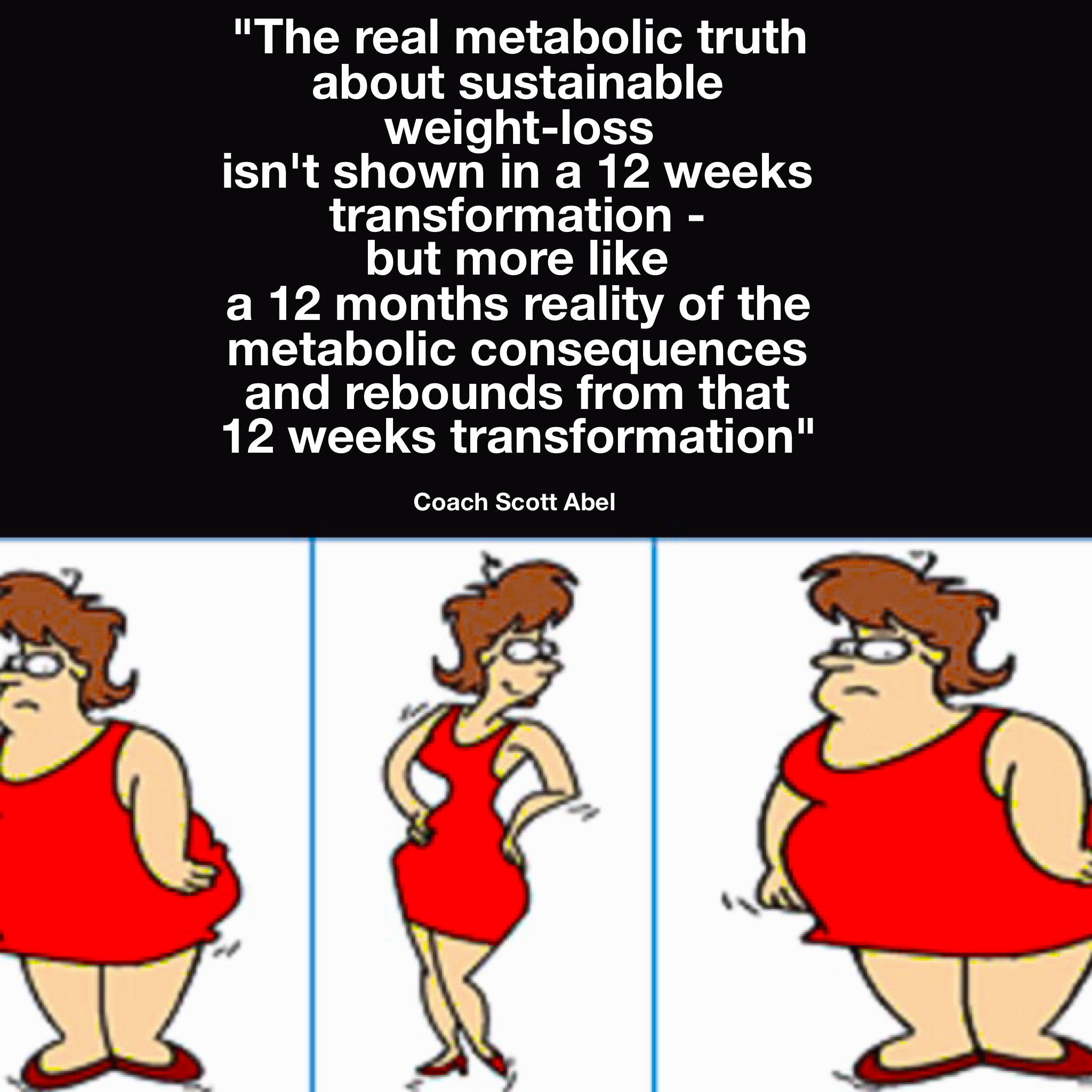Have you ever someone say that they have a “slow metabolism” and that’s why they have trouble losing weight?
First what exactly is metabolism?
Metabolism is the sum of all of the chemical reactions in your body.
The slow metabolism folks are referring to their Resting Metabolic Rate.
Resting Metabolic Rate is the energy (calories) your body uses to stay alive. Nearly 75% of our Total Energy Expenditure is determined by our Resting Metabolic rate
According to an article on examine.com:
Although people can have a fast or slow metabolism, extremes are pretty rare, often resulting from disease or prior obesity and resting metabolic rates are not well correlated with weight gain.
The effects of dieting on Metabolism
Losing weight translates into a decrease of Resting Metabolic Rate. It makes sense right? If you weigh less, then you don’t need as much energy as you did when you’re heavier.
The very process of eating below maintenance will reduce your Resting Metabolic Rate by 5-15% as your body becomes more sensitive to various hormones and chemicals that regulate how energy is used and expended. (Is my Slow Metabolism stalling my weight loss Examine.com)
I have read that 6 months of a severe caloric restriction reduces metabolic rate by 40%!
Losing Muscle Mass
We all know either through first hand experience or from people we know that metabolism slows as we age.
That mainly has to do with losing muscle mass. When people y go on diets (especially the low-calorie crash diets), they not only lose body fat but also lose muscle mass. Of course when they regain the weight, it is all fat mass leading to higher body fat than before.
And that is the very opposite of what we want to do.
So what does it all mean?
1. Stop Dieting
2. Find tools and processes that support a healthy metabolism/hormonal balance
3. Exercise (STRENGTH TRAINING)
A great process that doesn’t involve dieting and may support hormonal and metabolic processes is Intermittent Fasting.
As I looked into the research behind it, I started to see how having an 8 hour window of eating followed by fasting in line with our circadian rhythms could be of great benefit.








Leave A Comment